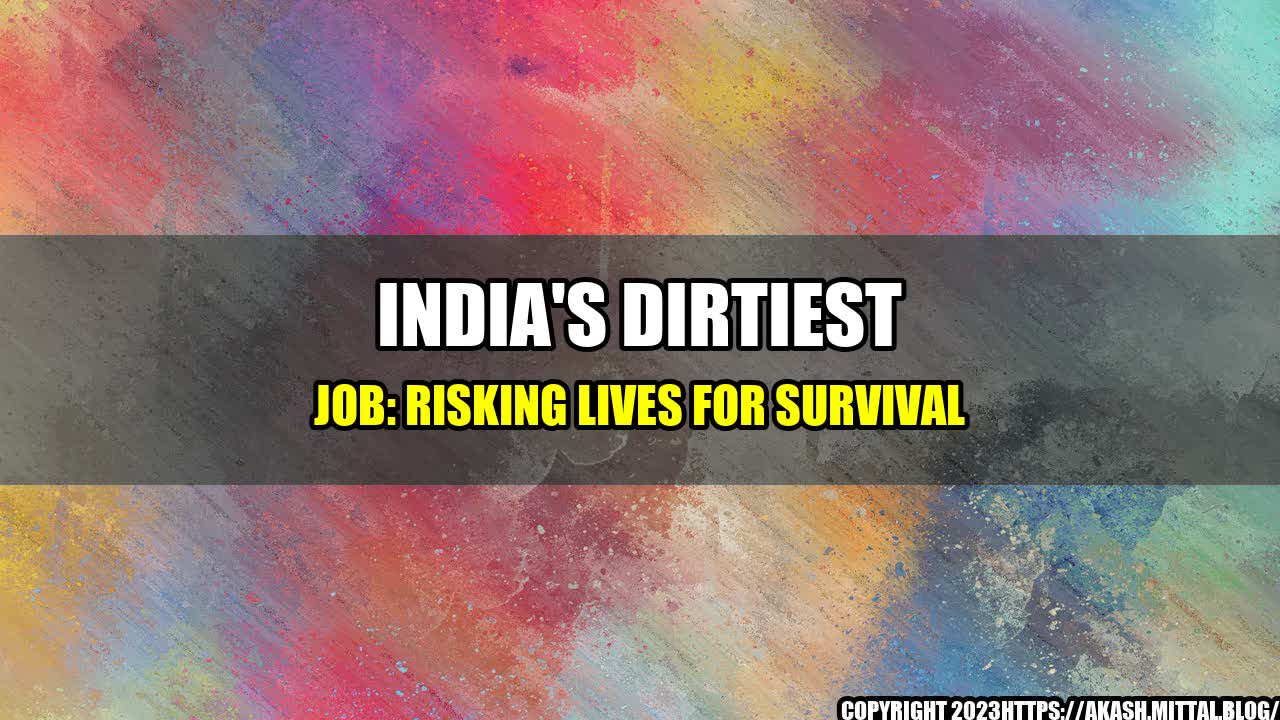The Story of Ram Prasad
As the sun sets on the city of Hyderabad, Ram Prasad gears up for his night shift. He's not a security guard or a construction worker. He's a manual scavenger - one of the thousands of people in India who are forced to clean dry toilets with their bare hands.
For generations, Ram Prasad's family has been trapped in this job due to their lower caste. Despite their numerous appeals to the authorities for a better livelihood, nothing has changed. And so, Ram Prasad continues to risk his life every day, handling human excreta without any protective gear.
But he's not alone in this struggle. According to a report by the Safai Karamchari Andolan, there are over 1.6 million manual scavengers in India. Most of them are Dalits or other marginalized communities who have no choice but to engage in this degrading work for survival.
the Problem
- According to the National Commission for Safai Karamcharis, over 1500 manual scavengers have died on the job in the past decade
- In 2019, eleven manual scavengers died in a single week due to asphyxiation in Tamil Nadu
- A survey conducted by the Union Ministry of Social Justice and Empowerment found that over 95% of manual scavengers earn less than the minimum wage
The Need for Change
It's clear that manual scavenging is not only a violation of human rights but also a public health hazard. The government has tried to eradicate this practice by enacting laws and providing alternate livelihoods, but it's not enough. The root cause of this problem - caste discrimination - needs to be addressed.
Firstly, the government needs to enforce strict penalties for those who continue to engage in manual scavenging. They should provide legal aid to the victims and their families, as well as rehabilitation and skill development opportunities so that they can transition to other professions.
Secondly, there needs to be a shift in societal mindset. We need to recognize the inherent dignity and worth of all humans, regardless of their caste or occupation. Education and awareness campaigns should be conducted to sensitize people to this issue and promote sanitation technologies that eliminate the need for manual scavenging.
Lastly, we need to support grassroots organizations and activists who are working towards ending manual scavenging. Their voices and experiences are essential in shaping policies and creating a more equitable society.
and Case Studies
As I was researching this topic, I came across the story of Anita Narre. She was married to a manual scavenger and, despite the social stigma, refused to let him continue in this line of work. With the help of a local NGO, she convinced her husband to give up this job and pursue education instead. Today, her husband is a certified nurse and they both lead a dignified life.
There's also the story of Bezwada Wilson, who has been working towards eradicating manual scavenging for over 35 years. His organization, Safai Karamchari Andolan, has helped thousands of manual scavengers transition to other professions and has advocated for their rights in the courts.
Practical Tips for Readers
- Support grassroots organizations that are working towards ending manual scavenging
- Advocate for strict penalties for those who engage in manual scavenging, as well as legal aid and rehabilitation for victims and their families
- Promote awareness about sanitation technologies that eliminate the need for manual scavenging
- Recognize the dignity and worth of all humans, regardless of their caste or occupation

Curated by Team Akash.Mittal.Blog
Share on Twitter Share on LinkedIn